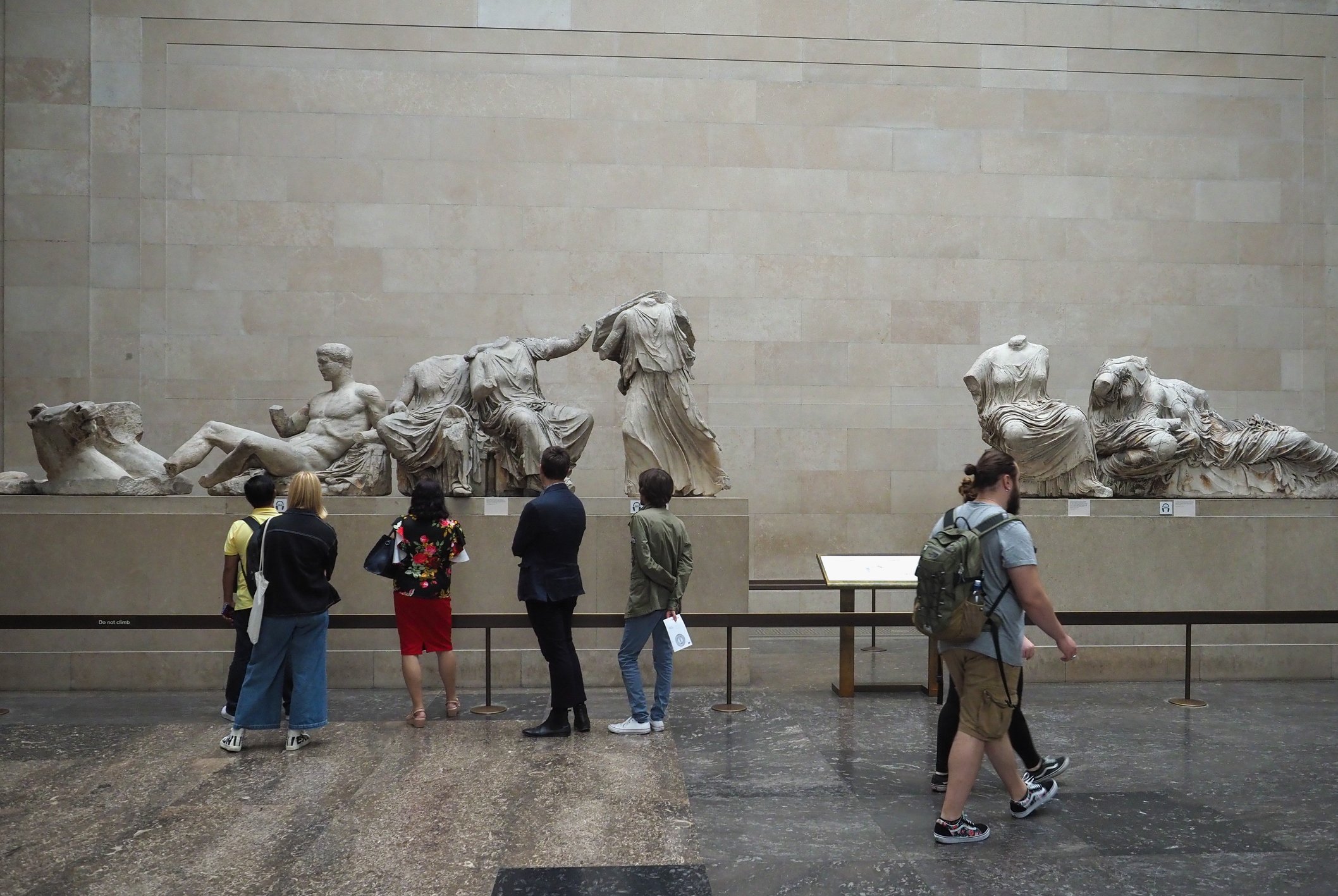
The Parthenon sculptures at the British Museum in London have been at the centre of repatriation arguments
Photo: iStock
Briefing calls for museums to be given repatriation powers
The briefing for the UK government says a national policy on repatriation could also act ‘as a form of soft power’ in international relations.
National museums should have the authority to “repatriate cultural items on moral grounds”, a government briefing has said.
The call is one of several recommendations made as part of proposals for creating a national policy on the repatriation of objects held by UK institutions.
The briefing by Exeter University researcher Amy Shakespeare, who set up the organisation Routes to Return: Working Towards International Repatriation, suggests that powers for national museums and galleries should be included in sections 15 and 16 of the 2022 Charities Act.
Earlier this year, the previous UK government amended the act to exclude national collections.
The policy briefing urges the government to create a national, funded policy on repatriating indigenous human remains and cultural property from UK collections.
To inform policy and practice, it says more research should be undertaken “around how many, and which, ancestors and belongings are held in UK collections, their provenance, and how many repatriations have occurred”.
This would make it possible to measure the UK’s progress on the issue, enabling museums to undertake the work while also holding them accountable.
Funding for the policy, which the briefing proposes, should be made available via the Department for Culture, Media and Sport and the Arts and Humanities Research Council, which could support this research and training and skills programmes.
It would also cover the costs associated with the return of any items.
Indigenous rights
The briefing calls on the UK government to act in accordance with the United Declaration on the Rights of Indigenous Peoples 2007 (UNDRIP), the adoption of which the UK supported.
Article 12 of the non-binding declaration says “states shall seek to enable the access and/or repatriation of ceremonial objects and human remains in their possession through fair, transparent and effective mechanisms developed in conjunction with Indigenous Peoples concerned”.
As well as highlighting the UK’s moral obligations, the briefing says that a national policy could also act “as a form of soft power which could aid international power relations and diplomacy,” with repatriation playing “a powerful role in the recognition of sovereignty and the commitment to operating nation to nation with indigenous nations”.
State-centric
Following the publication in 2018 of the Carr-Savoy report, which was commissioned by French President Emmanuel Macron and recommended large-scale repatriation of African cultural items, European countries, including France, Germany, and the Netherlands, have published national guidelines and policies on repatriation.
However, the briefing states that the actions taken by countries have been taken “in state-centric ways that limit the full realisation of enacting this human right”.
It adds that there has been “a low number of returns conducted by these countries, due to their efforts being led by national governments rather than institutions, and further prohibited by a lack of skills and experience in repatriation”.
The briefing says there is an opportunity for UK museums to lead in the area of cultural repatriation due to this Europe-wide skills gap.
It states: “The UK’s museum sector has already been slowly undertaking this work with little support for over 30 years, so by providing national policy and funding for international repatriation, the UK has the opportunity to become a world leader in international repatriation.”
Join the Discussion
You must be logged in to post a comment.